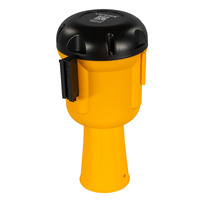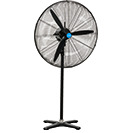Industrial vs Residential Workbenches
Date Posted:30 April 2025
Learn the key differences between home-use and heavy-duty workbenches. Make the right choice based on durability, capacity, long-term value and more.
Choosing the right type of workbench is crucial for when you're running a busy industrial facility or simply setting up a garage workspace at home.
A workbench serves as the backbone of productivity in any environment where hands-on tasks take place, from assembly lines to home DIY projects.
Selecting the right bench directly impacts safety, performance, efficiency, and even long-term durability.
With various types of workbenches available on the market, it's important to understand the key differences between residential and heavy-duty industrial options.
There are other factors to be mindful of such as the fundamentals of what are workbenches used for and what are the key features to consider for a workbench in the workplace.
This blog will help you compare both types and guide you toward the most suitable choice for your workspace.
What Is a Residential Workbench?
Residential workbenches are commonly found in garages, sheds, and small home workshops.
Typically constructed from lighter materials like medium-density fibreboard (MDF), plywood, or plastic composites, these benches are designed for general-purpose, low-impact tasks.
Many residential models feature a simple frame, a flat work surface, and perhaps a small shelf or pegboard for storing hand tools.
They are ideal for hobbyists, DIY enthusiasts, and occasional repairs, such as woodworking, assembling furniture, or fixing household items.
While they serve well in these casual settings, residential workbenches are not built to handle high weight capacities or prolonged industrial use.
Their structural integrity and surface durability are often limited, making them unsuitable for heavy-duty tools or environments where safety and productivity are non-negotiable.
In summary, residential workbenches are perfect for light-duty tasks but can fall short in demanding work conditions.
What Is a Heavy Duty Industrial Workbench?
Heavy-duty industrial workbenches are purpose-built for professional and industrial use, where reliability, strength, and efficiency are key.
These benches are constructed from robust materials such as powder-coated steel, stainless steel, or hardwood, designed to endure high loads, repetitive tasks, and the wear-and-tear of daily operations.
You’ll often find these workbenches in manufacturing plants, automotive workshops, warehousing facilities, and assembly lines.
They offer high weight capacities ranging from several hundred kilograms to over a tonne and include advanced features like adjustable height, integrated tool storage, power outlets, and ergonomic designs.
Some industrial models are modular or fully customisable to suit specific workflows.
Their surfaces may also be chemically resistant or anti-static, which is crucial in industries like electronics, pharmaceuticals, or chemical processing.
At Verdex, we supply different types of workbenches to meet the requirements of your business’ operations. These include:
Ultimately, a heavy-duty workbench is an investment that delivers long-term performance, safety, and adaptability in high-demand environments.

Key Differences of Industrial vs Residential Workbenches
When choosing between an industrial and a residential workbench, it’s important to weigh the practical differences that go beyond aesthetics or price.
Here's a detailed breakdown:
1. Materials and Construction
As mentioned, residential workbenches are typically made from lightweight materials such as MDF, softwood, or aluminium.
While suitable for general use, these materials may warp, crack, or become unstable over time, especially when subjected to heavy tools or high-impact work.
Industrial workbenches, on the other hand, use robust materials like stainless steel, high-grade hardwood, and reinforced steel frames.
This ensures structural integrity under constant pressure and heavy use, making them far more durable in the long run.
2. Weight Capacity
Residential benches generally support up to 100kg to 200kg, depending on design and material.
Industrial workbenches often support 500kg or more, with some models rated for over 1,000kg.
This makes them ideal for supporting heavy equipment, components, or machinery in busy workplace environments.
3. Durability and Lifespan
An industrial bench is designed to last for decades with proper maintenance. Its construction resists wear from chemicals, oils, vibrations, and other environmental factors common in commercial settings.
Residential benches, while adequate for short-term or light use, may not withstand repeated stress or exposure to industrial conditions.
4. Features and Functionality
Industrial workbenches often include:
-
Adjustable height options (manual or electric)
-
Tool storage systems
-
Lockable drawers or cabinets
-
Anti-fatigue mats or ergonomic features
-
Various industrial workplace equipment and other shelving and storage equipment
Residential workbenches can include basic shelving or pegboards, but generally lack these enhanced features.
5. Customisation Options
Most industrial workbenches can be tailored to the user's specific needs, such as adding lighting, expanding the surface, or integrating with other systems.
Try our workbench configurator for a customised solution to fit your operations.
Residential options tend to offer fewer customisation features.
6. Cost
Understandably, industrial workbenches come at a higher price point due to their materials, engineering, and longevity.
However, this cost often pays for itself in terms of reduced maintenance, improved safety, and productivity gains.
Residential benches are more affordable upfront, but may require more frequent replacement or upgrades.
7. Intended Use
If you're dealing with power tools, repetitive production tasks, or need a workspace that complies with work health and safety standards, an industrial bench is a must.
For occasional home projects or hobbies, a residential bench might be enough.
.jpg)
Which Workbench Is Right for You?
Choosing the right workbench comes down to your specific needs.
Ask yourself:
-
What type of tasks will I be performing?
-
How much space do I have?
-
Will multiple people use the bench?
-
Do I need built-in storage or special features?
-
What’s my budget?
If you’re setting up a commercial or industrial space, investing in a heavy-duty workbench is highly recommended for long-term value, safety, and productivity.
However, for light-duty tasks in a residential garage or hobby room, a basic workbench might serve you just fine.
Always consider future needs as your workspace may grow or evolve, so investing in a versatile bench could be a wise move.
Final Thoughts on Industrial and Residential Workbenches
The difference between a residential and an industrial workbench isn’t just about size or price. It’s about functionality, safety, and suitability for the task at hand.
Industrial environments demand workstations that can keep up with the pace, weight, and intensity of daily operations, while residential workbenches cater more to occasional, lightweight use.
Whether you're outfitting a manufacturing facility or building a DIY haven in your garage, choosing the right workbench can make a massive difference.
At Verdex, we offer a wide range of high-quality workbenches designed for both residential and industrial use.
Get in touch with us today for expert advice or browse our range to find the perfect solution for your workspace.
For custom or bespoke solution requirements, send your information to sales@verdex.com.au and we’ll return to you as soon as possible.
FAQs
1. Can I use a residential workbench in a commercial setting?
Technically, yes, but it’s not recommended. Residential workbenches aren’t built to withstand the demands of industrial environments, such as load capacities, and may pose safety risks over time.
2. Is a heavy-duty workbench always better than a residential one?
Not necessarily. It depends on your needs. For heavy or frequent use, industrial benches are ideal. For light tasks or occasional use, residential options may suffice.
3. Are workbenches customisable?
Yes. Many industrial workbenches can be customised with storage, power points, lighting, and ergonomic features to suit specific tasks or industries.
4. Are industrial benches worth the investment?
Absolutely. While they come at a higher upfront cost, industrial workbenches offer greater durability, safety, and performance making them a cost-effective solution in the long run.


































































































































 Trolleys & Hand Trucks
Trolleys & Hand Trucks Cage Trolleys
Cage Trolleys Cleaning Carts & Trolleys
Cleaning Carts & Trolleys Construction Trolleys
Construction Trolleys Custom Trolleys
Custom Trolleys Hand Trucks & Dollies
Hand Trucks & Dollies Laundry/Linen Trolleys
Laundry/Linen Trolleys Lifting Trolleys
Lifting Trolleys Order Picking Trolleys
Order Picking Trolleys Panel Cart Trolleys
Panel Cart Trolleys Platform Trolleys
Platform Trolleys Powered Trolleys
Powered Trolleys Shelf & Tiered Trolleys
Shelf & Tiered Trolleys Shopping Trolleys
Shopping Trolleys Stainless Steel Trolleys
Stainless Steel Trolleys Tool Trolleys
Tool Trolleys Utility & Service Carts
Utility & Service Carts Lifting & Handling Equipment
Lifting & Handling Equipment Forklift Attachments
Forklift Attachments Jib Attachments
Jib Attachments Lifting Hoists & Pallet Hooks
Lifting Hoists & Pallet Hooks Load Skates & Tow Tugs
Load Skates & Tow Tugs Manual Stackers & Lifters
Manual Stackers & Lifters Pallet Jacks
Pallet Jacks Pallet Lifters
Pallet Lifters Pallet Rotators & Dispenser
Pallet Rotators & Dispenser Powered Pallet Trucks & Electric Lifters
Powered Pallet Trucks & Electric Lifters Scissor Lift Trolleys and Tables
Scissor Lift Trolleys and Tables Conveyor Equipment
Conveyor Equipment Conveyor Frames & Stands
Conveyor Frames & Stands Roller & Skate Conveyors
Roller & Skate Conveyors Ladders & Access Equipment
Ladders & Access Equipment Container & Yard Ramps
Container & Yard Ramps Ladders & Step Stools
Ladders & Step Stools Work Platforms & Crane Cages
Work Platforms & Crane Cages Drum Handling Equipment
Drum Handling Equipment Drum Storage & Bunding
Drum Storage & Bunding Drum Trolleys & Lifters
Drum Trolleys & Lifters Forklift Drum Handling
Forklift Drum Handling Waste Handling & Bins
Waste Handling & Bins Bin Lifters & Tippers
Bin Lifters & Tippers Plastic Waste & Wheelie Bins
Plastic Waste & Wheelie Bins Steel Waste & Tipping Bins
Steel Waste & Tipping Bins Waste Carts
Waste Carts Dangerous Goods Storage & Spillage
Dangerous Goods Storage & Spillage Aerosol Cans Storage Cages
Aerosol Cans Storage Cages Bunded Pallets & Storage
Bunded Pallets & Storage Corrosive Goods Storage Cabinets
Corrosive Goods Storage Cabinets DG Storage & Trolleys
DG Storage & Trolleys Flammable Liquid Cabinets
Flammable Liquid Cabinets Forklift Gas Storage Cages
Forklift Gas Storage Cages Gas Cylinder Storage Bays
Gas Cylinder Storage Bays Site Storage
Site Storage Spill Kits
Spill Kits Shelving & Storage Equipment
Shelving & Storage Equipment Stillage & Transport Cages
Stillage & Transport Cages 750 Series Cage Configurations
750 Series Cage Configurations Heavy Duty Cabinets
Heavy Duty Cabinets Heavy Duty Shelving
Heavy Duty Shelving Mega Bins & Pallets
Mega Bins & Pallets Packing & Workbenches
Packing & Workbenches Parts Trays & Stor-Pak Bins
Parts Trays & Stor-Pak Bins Pegboard & Louvre Panels
Pegboard & Louvre Panels Plastic Bins & Crates
Plastic Bins & Crates Plastic Handling Solutions Bins
Plastic Handling Solutions Bins Plastic Pallets
Plastic Pallets Stack & Nest Bins
Stack & Nest Bins Pallet Racking Accessories
Pallet Racking Accessories Workplace Equipment
Workplace Equipment Modular Workbenches
Modular Workbenches Electric Height-Adjustable Workbenches
Electric Height-Adjustable Workbenches Floor Matting
Floor Matting General Workplace Equipment
General Workplace Equipment Industrial Weighing Scales
Industrial Weighing Scales Packaging Machinery
Packaging Machinery Stationery Cupboards
Stationery Cupboards Storage and Stillage Cages
Storage and Stillage Cages Tool Trolleys
Tool Trolleys Tooling Cabinets
Tooling Cabinets Workshop Fans and Coolers
Workshop Fans and Coolers Safety Barriers, PPE & Signage
Safety Barriers, PPE & Signage Modular Safety Fence System
Modular Safety Fence System Barriers & Bollards
Barriers & Bollards First Aid Equipment
First Aid Equipment Gloves, Knives and PPE
Gloves, Knives and PPE Signage
Signage Cleaning & Site Supplies
Cleaning & Site Supplies Cleaning Equipment
Cleaning Equipment Cleaning Trolleys
Cleaning Trolleys Rubbish Bins
Rubbish Bins Signs & Traffic Supplies
Signs & Traffic Supplies Construction Equipment
Construction Equipment Construction Trolleys
Construction Trolleys Waste Handling
Waste Handling General Site Equipment
General Site Equipment Concrete Equipment
Concrete Equipment Site Storage
Site Storage Lifting Equipment
Lifting Equipment Verdex Specials
Verdex Specials









